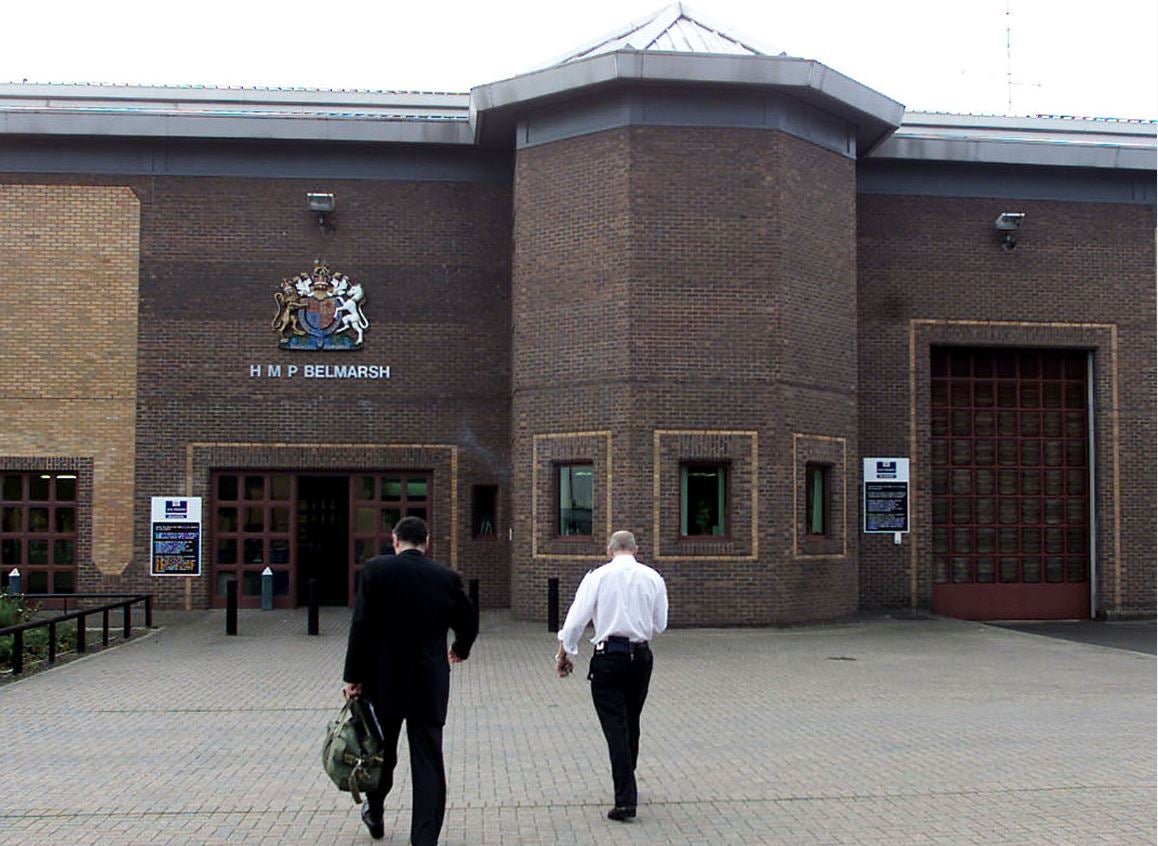
A prison officer has spoken out about how his life was devastated after the publisher of the Daily Mirror gave details about payments made to him by the newspaper to the Met Police.
Robert Norman is one of 32 newspaper sources who were convicted under Operation Elveden after Trinity Mirror and News Corp released information about payments by their newspapers to public officials.
He is the first to speak out publicly about the sense of betrayal he feels and the impact prosecution has had on him and his family.
Norman, 56, was jailed for 30 months in June 2015. Last month he lost an appeal against conviction. He is now planning a further appeal to the Supreme Court.
He first got in contact with the Daily Mirror when he was working at HMP Belmarsh – a maximum security prison in south east London.
He says that as health and safety officer for the Prison Officers’ Association it came to his attention that a female officer was having an affair with an inmate.
He said that after efforts were made to deal with the matter internally, he phoned the Daily Mirror newsdesk and was put in touch with reporter Stephen Moyes.
He told Press Gazette: “It was a category A high-risk prison and this represented a danger to every single one of us, three or four other people gave out that story as well. I don’t think Steve ran with it because somebody else ran with it.
“Then Steve gave me his number and basically said if you have any other stories that are in the public interest give me a call – and I did, over staff cuts and security.
“All the stories I gave him were in the public interest, highlighting dangers to the public and dangers to staff.
“Stephen managed to get a story in about the staff cuts and we went from there.”
Over the course of five years, from April 2006, Norman was paid £10,684 for sharing 40 pieces of information with the Daily Mirror.
He says that money was not the “driving factor”, but rather exposing issues which he felt had a bearing on the safety of the prison.
Information leaked to Moyes included tips about prisoners being downgraded from Category A (the most dangerous) to Category B and C in order to ease overcrowding, security issues over laptops given to prisoners and officers’ failure to properly search inmates.
Norman said all the stories he gave the Mirror were true and in the public interest and that this was underlined by the fact that in every case they were confirmed by the Prison Service press office.
He said that after he “had become fed up with the whole situation in the service” he decided to stop giving stories to the Mirror.
“I cut all ties with Stephen and decided to concentrate on getting through to retirement. Despite all the stories, nothing had changed. It was all cutbacks and getting more and more dangerous on the landings.”
Then, in May 2013, Norman’s dealings with the Daily Mirror came back to haunt him.
“I was arrested at 5.45am in the morning by 16 Metropolitan Police officers barging into my house – all that was missing were the helicopters and the napalm.
“They arrested me, cautioned me, arrested my son and took us down to Bexley Heath police station with every single electronic device in the house. I was on police bail for two years and then there was a three-week trial.”
His then 25 year-old son was not charged.
Two weeks before the trial the charges were dropped against Moyes, who was set to be his co-defendant. The cases against nine journalists were abandoned as a result of a review by the Crown Prosecution Service in the light of former News of the World reporter Lucy Panton’s successful appeal.
The Court of Appeal ruled that it had to be proven that disclosures harmed the public interest for charges against journalists to stick.
Norman accepts that he breached the terms of his employment but does not believe he committed the offence he was convicted of – misconduct in a public office.
He said: “The prosecution kept saying that I had broken the rules and kept referring to the 2006 staff handbook. All I was expecting was a code of discipline breach.
“Even in the code of discipline it is misconduct, not gross misconduct. I wasn’t expecting to be put on criminal trial for three weeks for breaking the terms of my employment.”
Norman had to sell his house in order to pay the £51,000 cost of his defence.
He served six months in prison and five under home detention.
He began his sentence at at HMP Elmley on the Isle of Sheppey but says he was put in segregation (a form of punishment) for his own safety after his identity as a prison officer was revealed.
He was then moved to HMP Leyhill in Gloucestershire, a prison for high-risk sex offenders, to serve out the rest of his sentence.
Norman said his wife’s mental health has been severely affected by his conviction.
He said the shock of 16 police officers entering their home was the start of her mental health problems but that since then she has received excellent help from the NHS and she is now “on the road to recovery”.
After losing his job he now lives on the £64 a week which he receives from the state for being his wife’s full-time carer.
In rejecting his appeal against conviction, the Court of Appeal noted that Trinity Mirror made its own decision to conduct a search of its email servers for 68 words which could imply payments being made to public officials.
It then volunteered information about Norman, and Moyes, to the police apparently as part of a strategy calculated to help stave off a corporate prosecution.
Asked what he thinks about the fact Trinity Mirror shared his details with the police, Norman said: “They don’t have the right to do that. You’re a source and journalists are supposed to look after their sources.
“They just gave me up to get themselves out of a corporate prosecution. They even sold Stephen out, their own reporter. It doesn’t seem right.
“He went through the same two years of hell waiting to hear if he would be charged that I did.
“I think the way myself and other whistleblowers have been treated is absolutely atrocious.”
This month some 10,000 prison officers in England and Wales stopped work in protest at what they said was an upsurge in violence in jails.
Norman said: “If the stories aren’t allowed to come out then prisons are going to get more and more dangerous because these issues won’t be addressed. Everything I did was for the safety of staff.”
Stories leaked by Norman included the following:
- The suicide of a prisoner
- Suspension of a prison chaplain for inappropriate behaviour with prisoners
- The demands Abu Hamza had made on the prison service
- Costs incurred keeping Ipswich murder Stephen Wright in isolation
- A sexual relationship between a female warder and a prisoner
- Excessive expenditure on a staff party off site
- Attacks and plots to kill prison staff
- The prison failing security inspections.
In 2015 Moyes told Press Gazette of his dismay that Norman was facing trial.
![]()
![]()

He said he was a whistleblower, adding: “From 2006 when he rang the Daily Mirror after exhausting negotiations with the prison Governor and local MPs, he was hell-bent on highlighting mismanagement, waste of taxpayers’ funds, threats to his members, and stories that were massively in the public interest.
“Without him a number of important security and safety exposés would have been hushed up – by the same negligent prison management who were responsible for them.
“His concerns – of sweeping staff cuts at Belmarsh when they were at full capacity, threatening the lives of warders, inmates, and the general public – were backed up by reports and statistics from the independent prison inspector and charities such as the Howard League for Penal Reform.”
Trinity Mirror declined to comment.
Email pged@pressgazette.co.uk to point out mistakes, provide story tips or send in a letter for publication on our "Letters Page" blog
